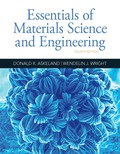
(a)
Interpretation:
The Hall-Petch equation's constants needs to be calculated.
Concept Introduction:
The relation between the grain size to the yield strength is shown as follows:
Here, the yield strength is
Answer to Problem 4.51P
The Hall-Petch equation constants are
Explanation of Solution
The properties of a Cu-Zn alloy are as follows:
| Grain Diameter (mm) | Strength (MPa) |
| | |
| | |
| | |
| | |
| S.N. | Grain Diameter (mm) | | Strength (MPa) | |
| | | | | |
| | | | | |
| | | | | |
| | | | |
In the above table, we have calculated
With the help of equation number
For strength
Therefore,
For strength of titanium is
Therefore,
Solving equation
And
Hence, the hall-Petch equation constants are
(b)
Interpretation:
For a strength of 200MPa, the required grain size needs to be calculated.
Concept Introduction:
The Hall-Petch equation relates the grain size to the yield strength as follows:
Here,
The yield strength is
Answer to Problem 4.51P
The grain size which is required is
Explanation of Solution
Now, we have the Hall-Petch equation after we calculated the constants, then the equation
Here, the strength required,
Hence, the grain size required is
Want to see more full solutions like this?
Chapter 4 Solutions
Essentials Of Materials Science And Engineering
- Plot the unit step and unit ramp response curve for the following closed loop transferfunction using MATLAB. Indicate clearly the input and output in your plot Auto Controls provide matlab codearrow_forwardFind the valve of voltage Vx using SUPERPOSITION 1 M FA www 4 5 M MAA 12V - $10 33 M 23 +x mn 6 8Aarrow_forwardUsing a "for loop" in MATLAB program to obtain the unit-step response of thissystem for the following four cases in a single plot What can you observe from the plot? Auto Controls Provide matlab codearrow_forward
- Water at 20°C flows at a steady average velocity of 5.25 m/s through a smooth pipe of diameter 5.08 cm. The flow is fully developed through the entire section of pipe. The total pipe length is 10.56 m, and there are two 90' elbows. Determine the friction coefficient and the head loss due to friction per meter length of the pipe. Control volume Prepared by Engr. Kirsten Gaarrow_forwardProblem 2 (40 Points) A particle of mass m is embedded at a distance a from the center of a massless circular disk of radius r. The disk rolls without slipping down a plane inclined at an angle a with the horizontal. A horizontal force of Ễ = −Fxî + Fyĵ resists motion of the disk down the plane by pushing on the disk at the axle that runs through the center of the disk. a) Find the kinetic energy T. (10 points) b) Find the potential energy V. (10 points) c) Write a position vector to the axle at the center of the wheel in terms of x and y. (10 points) d) Using virtual work, find the applied force Q₁ that would go in Lagrange's Equations. DO NOT WRITE OUT OR SOLVE LAGRANGES'S EQUATIONS. (10 points) x r m e 10 g F α HINTS 1) Consider using the STATIONARY red xy frame a reference frame from which to draw vectors 2) The red xy system DOES NOT move. It is stationary. 3) Consider that the disk rolls a distance of re down the ramparrow_forwardFind the Valve of Voltage Vy using SUPERPOSITION الله 8 ZV ДАДА 6 5 ча 4 w 3 1 mm 2A MWarrow_forward
- W AutoSave Off File Home Insert Draw Design Assignment_1[1] - Protected... ■ Saved V > Search Layout References Mailings Review View Help QuillBot RefWorks - RCM PROTECTED VIEW Be careful-files from the Internet can contain viruses. Unless you need to edit, it's safer to stay in Protected View. Enable Editing PR Comments Viewing Share × 2. The following state transition table is a simplified model of process management, with the labels representing transitions between states of READY, RUN, BLOCKED, and NONRESIDENT. READY RUN BLOCKED NONRESIDENT READY RUN - 1 - 5 BLOCKED 2 4 3 - 6 Give an example of an event that can cause each of the above transitions. Draw a diagram if that helps. (5) Page 2 of 4 20 of 278 words Text Predictions: On 64 f W Focus + 170% ENG US 17:13 2025/03/24arrow_forwardI need help understanding how could I got the IP Address for the Last Host on this Subnet & the Broadcast Address for this Subnetarrow_forward1500 N A B 3500 N/m 1.2 m 3.6 m 1.2 m 1800 N Beam Cross-section: 4b T D b 25 mm 100 mm For beam ABCD with cross-section shown, design the beam by determining the following: Draw the shear and bending moment diagrams (show your detailed computations to get credit) The minimum dimension for b [mm], knowing that the allowable flexural stress and transverse shear stress are 10 MPa and 0.5 MPa, respectively.arrow_forward
 MATLAB: An Introduction with ApplicationsEngineeringISBN:9781119256830Author:Amos GilatPublisher:John Wiley & Sons Inc
MATLAB: An Introduction with ApplicationsEngineeringISBN:9781119256830Author:Amos GilatPublisher:John Wiley & Sons Inc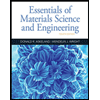 Essentials Of Materials Science And EngineeringEngineeringISBN:9781337385497Author:WRIGHT, Wendelin J.Publisher:Cengage,
Essentials Of Materials Science And EngineeringEngineeringISBN:9781337385497Author:WRIGHT, Wendelin J.Publisher:Cengage, Industrial Motor ControlEngineeringISBN:9781133691808Author:Stephen HermanPublisher:Cengage Learning
Industrial Motor ControlEngineeringISBN:9781133691808Author:Stephen HermanPublisher:Cengage Learning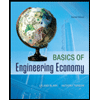 Basics Of Engineering EconomyEngineeringISBN:9780073376356Author:Leland Blank, Anthony TarquinPublisher:MCGRAW-HILL HIGHER EDUCATION
Basics Of Engineering EconomyEngineeringISBN:9780073376356Author:Leland Blank, Anthony TarquinPublisher:MCGRAW-HILL HIGHER EDUCATION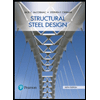 Structural Steel Design (6th Edition)EngineeringISBN:9780134589657Author:Jack C. McCormac, Stephen F. CsernakPublisher:PEARSON
Structural Steel Design (6th Edition)EngineeringISBN:9780134589657Author:Jack C. McCormac, Stephen F. CsernakPublisher:PEARSON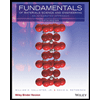 Fundamentals of Materials Science and Engineering...EngineeringISBN:9781119175483Author:William D. Callister Jr., David G. RethwischPublisher:WILEY
Fundamentals of Materials Science and Engineering...EngineeringISBN:9781119175483Author:William D. Callister Jr., David G. RethwischPublisher:WILEY





